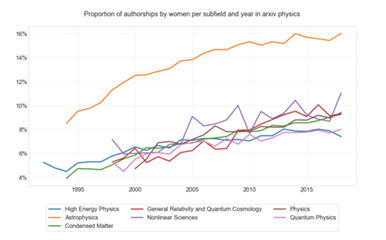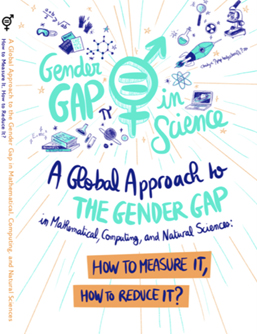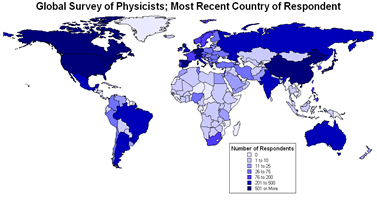
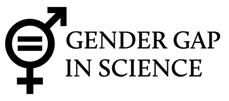
The Gender Gap is still quite pervasive in most STEM areas. In this regard, the Global Survey of Physicists, conducted in 2009–2010 with 15,000 respondents from 130 countries, provided very useful information. It revealed sex-based differences in resources, professional opportunities, and family responsibilities. Differences across regions and countries were also observed. The situation, however, needed a regular monitoring to design best strategies and apply them.
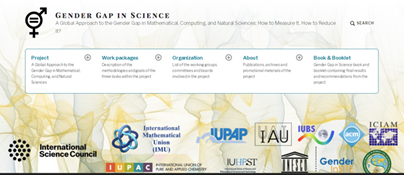
Although the IUPAP’s Working Group on Women in Physics was aware of this need, conducting a new survey required funds that are not always available. The scheme of international grants introduced in 2016 by the International Science Council (then ICSU) provided an excellent opportunity to obtain those funds.
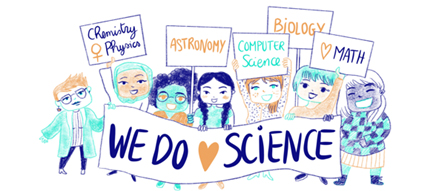
With this in mind, the Working Group partnered up with the International Mathematical Union (IMU), the International Union of Pure and Applied Chemistry (IUPAC), and other scientific unions to conduct the project entitled “A Global Approach to the Gender Gap in Mathematical and Natural Sciences: How to Measure It, How to Reduce It?”.
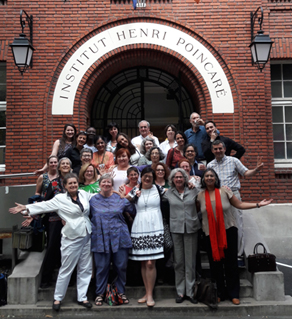
First meeting of the Project’s coordinating group. Paris, 2017.
The project received funding from ISC for the period 2017-2019 and was carried out with the coordination of Marie-Francoise Roy (IMU), Mei-Hung Chiu (IUPAC) and Igle Gledhill (IUPAP). It now continues with support from its 11 international partners, among them, IUPAP. The very fruitful exchange across disciplines led to the definition of other tasks besides the realization of the survey. These, together with the project’s specific aims, are listed in what follows.
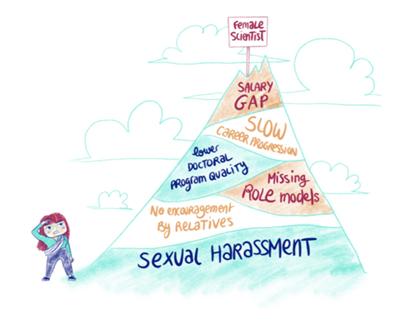
Project Specific Aims
- Provide evidence via a joint global survey and a study of publication patterns on which to orient future actions.
- Determine differences and commonalities across regions, cultures, and disciplines, cross-referencing the data with other available indicators about the countries.
- Provide easy access to materials to encourage young women to work in the fields of science, technology, engineering, and mathematics (STEM), including information about careers and salaries directed at parents, schools, and others who influence the career choices of girls, in particular in the developing world.
- Recommend practical policies and actions to reduce the gender gap.
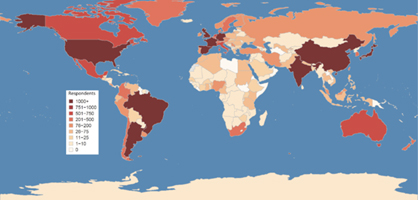
Global Survey of Scientists: Number of Respondents per Country
Project Tasks
- Global Survey of Mathematical, Computing and Natural Scientists. It was open during 2018 and received about 34,000 responses from over 150 countries.
- Joint data-backed study of publication patterns
- Database of good practice. The database is currently hosted at the IMU website.
The book is available as print-on-demand and can be ordered through various distributors worldwide, e.g., https://www.bookdepository.com/Global-Approach-Gender-Gap-Mathematical-Computing-Natural-Sciences/9783000655333
Paper in Proceeding of the 6th International Conference on Women in Physics: G. Butcher et al, “An international and interdisciplinary project to analyze and help reduce the gender gap in mathematics and the natural sciences”, AIP Conference Proceedings 2109, 030006 (2019); https://doi.org/10.1063/1.5110068
Promotional Booklet in English. For other languages, please visit: https://gender-gap-in-science.org/project-book-booklet/
Book produced by the Latin American Chapter of the Project, available for download in pdf.






